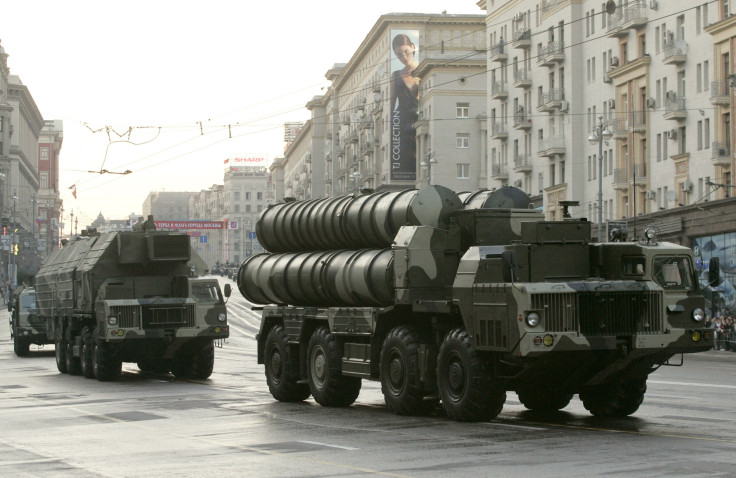Russia-Iran Weapons Deal: S-300 Missile System Delivery Worries Israel

Russia and Iran have signed a contract to begin the delivery of the S-300 missile system from Moscow to Tehran, a Russian official speaking at an airshow in Dubai said Monday. Russian President Vladimir Putin lifted an export ban to Iran in April, making way for the long-pending deal to go through.
“Speaking of the S-300 air defense system, the contract has already been signed,” said Sergei Chemezov, the head of Russian Technologies, which includes the state’s arms trader, Rosoboronexport, according to Russian news service RIA Novosti.
Russia was expected to begin delivering the missile systems to Iran by the end of 2016, the Financial Times reported. The S-300 is an anti-aircraft missile defense system.
An $800 million contract for the system was originally signed in 2007 but was blocked in 2010 under then-President Dmitry Medvedev when Tehran came under heavy international sanctions over the development of its nuclear program, the Moscow Times reported. Iran filed a $4 billion lawsuit in 2011 over the deal. Reports said Iran would drop its lawsuit after the first stage of the contract with Moscow was completed. There were no details available on the exact terms and stages of the contract.
The deal comes at a moment of increased tension in the region, with Israel fearful that the Iran nuclear deal backed by the U.S. and other Western powers to drop sanctions against Tehran will not prevent the state’s acquisition of nuclear weapons. Israeli Prime Minister Benjamin Netanyahu had urged Putin to prevent the sale of the S-300 in 2013. Arieh Herzog, a former head of Israel’s missile defense program told the Associated Press he did not expect the deal to ignite a regional arms race.
“The nature of deployment in Iran would be defensive and trying to prevent the capability of our air force to operate there as it may be capable of operating today,” Herzog said. “There will be a dramatic change in their capability, and it does not create a reasonable environment for any operation of our air force.”
Chemezov did not specify the exact model of the S-300 that would be delivered. Moscow began airstrikes in Syria Sept. 30 in a move to reassert itself in the Middle East.
© Copyright IBTimes 2024. All rights reserved.












